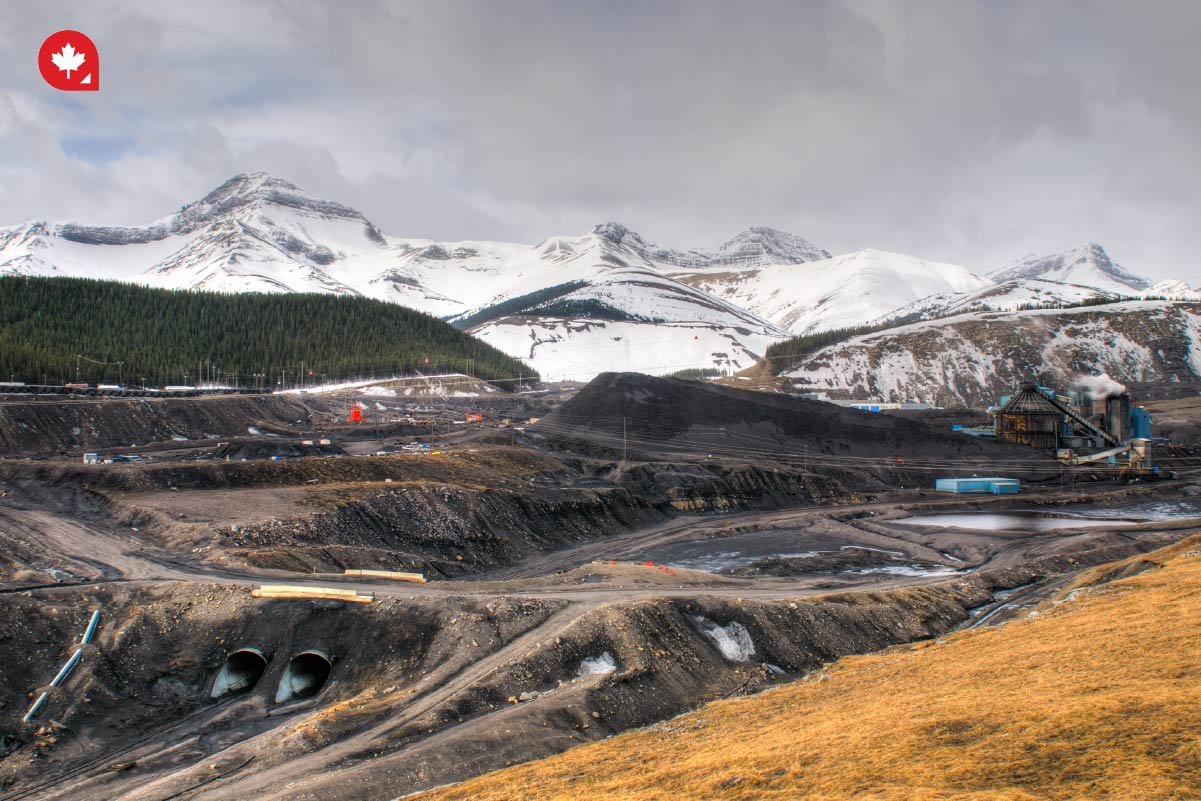Service Industry
How important is the service sector to Canada? From its healthcare, transportation, construction, banking, tourism, and more. Discover why Canada is called the Hollywood North and how the service industries are making Canada's economy flourish more than ever before!
Read More...Manufacturing
Learn which main manufacturing industries in Canada make each province flourish, from seafood to lumber and aerospace manufacturing. Uncover how heavily Canada depends on the manufacturing sector and if Canada has labor short of skilled workers.
Read More...Natural Resources
As the second-largest country in the world, Canada is largely underpopulated and offers a vast source of natural resources. The sector is primarily driven by forestry, fishing, agriculture, mining, and energy sectors. Canada is the world's 8th largest exporter of
Read More...Mining Sector
Over 800 mines across Canada currently employ more than 363,000 workers. In addition, the country ranks as the top producer of potash and uranium, ranking in the top 5 for nickel and diamonds...
Read More...When you think of Canada, you might picture vast landscapes, friendly people, and a thriving economy. Instead, Canada has one of the world's most robust and diversified economies thanks to its abundant natural resources and skilled workforce. In this article, you'll learn about the key industries in Canada and how they contribute to the country's economic success.
So, whether you're a Canadian looking for new career opportunities or a foreign worker interested in joining the Canadian workforce, this article is for you.
The Four Biggest Industries in Canada

The industry is vital in shaping Canadian life, significantly contributing to the nation's economy and overall well-being. Various sectors have flourished, from natural resource extraction to manufacturing and technology, providing ample employment opportunities and improving Canadians' living standards.
Moreover, the industry fosters innovation and research, leading to advancements in various fields such as healthcare, transportation, and communication. The Canadian government recognizes the importance of industry and has implemented policies and regulations to promote sustainable growth, reduce environmental impacts and ensure worker safety.
Manufacturing in Canada: A Thriving Sector
Manufacturing significantly contributes to the Canadian economy, accounting for approximately 10% of the country's GDP. The manufacturing sector in Canada is diverse, producing a wide range of goods such as automobiles, aerospace products, food, chemicals, and machinery.
The automobile industry is one of the top manufacturing industries in Canada, with Ontario being the largest producer of vehicles in North America. The aerospace industry is another major player, with companies like Bombardier and Pratt & Whitney Canada leading the way.
The Canadian manufacturing industry is enormous and innovative. As a result, the country is a leading exporter of high-tech products and services, which has helped fuel economic growth.
Canada's government is also committed to supporting the manufacturing sector through various programs and initiatives, such as the Strategic Innovation Fund and the Advanced Manufacturing Fund. These programs encourage innovation and competitiveness in the industry, ensuring that Canada remains a global manufacturing leader.
Mining in Canada: Tapping into Rich Natural Resources
Mining is another key industry in Canada, contributing significantly to the country's economic growth. Canada is rich in mineral resources, including gold and diamonds. The country is one of the world's top five producers of minerals. The mining industry directly employs over 400,000 people and indirectly supports many more jobs throughout the economy.
The Canadian mining industry is significant domestically and internationally. Canada is home to many of the world's leading mining companies, such as Barrick Gold, Teck Resources, and Goldcorp. Furthermore, Canadian mining companies are involved in projects in over 100 countries worldwide, highlighting the global reach of this industry. The Canadian government is also committed to supporting the mining industry with various policies and initiatives to promote investment and sustainable development. Learn more about the top provinces for mining in Canada here.
Canada's Natural Resources: A Diverse and Abundant Wealth
Canada is blessed with abundant natural resources, which play a central role in the country's economy. Canada's natural resources are diverse and plentiful, from forests and fisheries to oil and gas. The forestry industry is one of the largest in Canada, employing over 200,000 people and contributing billions of dollars to the economy each year. The fishing industry is also significant, with Canada being one of the world's largest exporters of fish and seafood products.
The oil and gas industry is another major player in Canada's natural resources sector. The country has the third-largest oil reserves in the world, most of which are found in Alberta's oil sands. The oil and gas industry significantly contributes to Canada's GDP and employs hundreds of thousands nationwide. Here's a quick breakdown of Canada's top provinces for oil and gas jobs. If you want to start your oil and gas career in Canada, you can learn more about how to move to Canada as an oil or gas drilling worker here. The Canadian government is committed to supporting the responsible development of the country's natural resources, ensuring that these industries remain sustainable and contribute to economic growth.
Service Industry in Canada: Driving Economic Growth
The service industry is the largest and fastest-growing sector in the Canadian economy, accounting for over 70% of the country's GDP. This sector includes various industries, such as finance, healthcare, education, and tourism. The financial services industry is particularly significant, with Toronto being one of the world's leading financial centers. The healthcare and education sectors also contribute to the economy, employing millions of Canadians and providing essential services to the population.
The tourism industry is another essential component of the service sector in Canada. The country is a popular destination for tourists worldwide, thanks to its beautiful landscapes, vibrant cities, and unique cultural experiences. The tourism industry contributes billions of dollars annually to the economy and supports over 1.8 million jobs. The Canadian government is committed to promoting tourism and ensuring that this sector continues to grow and contribute to the country's prosperity.
How Canadian Industry Affects Life in Canada

The key industries in Canada play a crucial role in shaping the country's economy and the lives of its citizens. These industries provide millions of jobs, support communities nationwide, and contribute to the population's well-being. In addition, the manufacturing, mining, service, and natural resources industries are significant in economic output and play a vital role in developing infrastructure, research and development, and environmental stewardship.
The success of these industries also has a ripple effect on other sectors of the economy, such as retail, construction, and transportation. As these critical industries continue to grow and innovate, they will help to ensure that Canada remains one of the world's most prosperous and competitive countries.
How to Work in the Biggest Industries in Canada

If you're a foreign worker interested in joining the Canadian workforce, there are several steps you can take to find work in the country's key industries. They are as follows:
Step 1: Research Where the In-demand Jobs Are in Canada
Start by identifying Canada's key industries and in-demand jobs. Then, visit Canada's top job sites to find job opportunities matching your skills and experience. This map shows which jobs are most in demand in Canada's provinces.
Step 2: Prepare a Canadian-style Resume and Cover Letter
Ensure your resume and cover letter follow the Canadian format and highlight your skills, qualifications, and relevant work experience. Emphasize your achievements and tailor your application to suit the specific job requirements. Learn more about how to prepare a Canadian resume here.
Step 3: Apply for Jobs in Canada
Submit your applications to relevant job postings on Canadian job boards, company websites, and through networking channels like LinkedIn. Attend job fairs, webinars, and workshops to connect with potential employers and learn more about the Canadian job market. Learn more about how to apply for jobs in Canada here.
Step 4: Obtain a Canadian Work Permit or Apply to a Permanent Residency Program
If you receive a job offer from a Canadian employer, you may need to apply for a work permit. However, if you want to make Canada your permanent home, you may be interested in one of Canada's permanent residency programs. There are various immigration programs available to foreign workers, such as:
- The Federal Skilled Worker Program (FSWP),
- The Federal Skilled Trades Program (FSTP),
- The Canadian Experience Class (CEC)
- Provincial Nominee Programs (PNPs), and
- Pilot Programs
Check the eligibility requirements and gather the necessary documentation for your application. Learn more about how to become a permanent resident of Canada here.
Step 5: Prepare for the Relocation
Once you have secured a job and the necessary permits or visas, plan your move to Canada. Research housing options, schools, and local amenities in the area you will be living in. Familiarize yourself with Canadian culture, customs, and laws to ease your transition into your new life. If you want to learn more about all the factors to remember when preparing for your life in Canada, here's a handy guide.
Step 6: Make Your Move to Canada
Once your preparations are complete, move to Canada and start your new job. Be prepared to adapt to your new environment and workplace culture—network with colleagues and local communities to establish connections and grow your professional network. Here's a handy breakdown of what to expect from life in Canada.
Remember, working in Canada can open up many personal and professional growth opportunities, so don't hesitate to take the first step toward a brighter future.
FAQs
What is the Largest Industry in Canada?
The service industry is the largest and fastest-growing sector in the Canadian economy, accounting for over 70% of the country's GDP. This sector includes various industries, such as finance, healthcare, education, and tourism.
Is Manufacturing Still Important in Canada?
Manufacturing remains a crucial part of the Canadian economy. The manufacturing sector contributes approximately 10% of the country's GDP and is a leading exporter of high-tech products and services.
Canadian Industry: Your Next Step?

Canada's key industries are diverse and thriving, offering many opportunities for domestic and foreign workers. From manufacturing and mining to natural resources and the service sector, these industries play a vital role in the country's economy and contribute to the well-being of its citizens.
If you're a foreign worker interested in joining the Canadian workforce, don't hesitate to explore the various immigration programs available and begin your journey toward a fulfilling career in one of the world's most prosperous countries.



